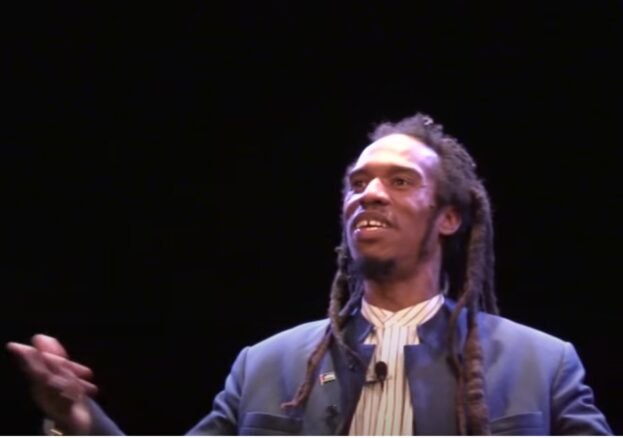
Benjamin Zephaniah is a British Jamaican poet, writer, and musician, born on April 15, 1958, in Birmingham, England. He is known for his poetry, which often deals with themes of race, politics, and social injustice, as well as his work as a musician and actor.
Zephaniah’s poetry is characterized by its strong political and social messages, and he often addresses issues such as racism, poverty, and inequality. His writing is also known for its use of Jamaican Creole and other dialects, as well as its rhythmic, musical qualities.
Some of his most famous poems include:
“Dis Policeman Keeps on Kicking Me to Death” – This poem is a powerful indictment of police brutality, particularly against black people. Zephaniah uses vivid language and repetition to convey the sense of violence and injustice.
“The Death of Joy Gardner” – This poem is a tribute to Joy Gardner, a Jamaican woman who died during a deportation attempt by UK authorities in 1993. Zephaniah uses his trademark rhythmic style to create a sense of urgency and outrage about the injustice of the situation.
“Talking Turkeys” – This is one of Zephaniah’s most famous poems, and is often taught in schools. It is a humorous and irreverent take on the traditional Christmas turkey, with Zephaniah using his wit and wordplay to criticize the consumerist culture of the holiday season.
“Love Arsenal” – This poem is a love letter to Zephaniah’s favorite football team, Arsenal. He uses his poetic skills to create a sense of excitement and passion for the sport and his team.
“We Refugees” – This poem is a powerful reminder of the struggles faced by refugees and migrants, particularly in the UK. Zephaniah uses his personal experience as a black British Jamaican to connect with the experiences of those seeking asylum and refuge in the country.
Aside from his work as a poet, Zephaniah has also written several plays and novels, including “Face” (1999), which was adapted into a television series, and “Gangsta Rap” (2004). He has also worked as a television presenter and appeared in several films, including “Farendj” (2008) and “Shank” (2010).
Throughout his career, Zephaniah has been an outspoken advocate for social justice and human rights, and he has been recognized for his contributions to literature and activism with numerous awards and honors. These include an OBE (Order of the British Empire) in 2008 for his services to literature and a Lifetime Achievement Award from the Birmingham Black International Film Festival in 2019.
